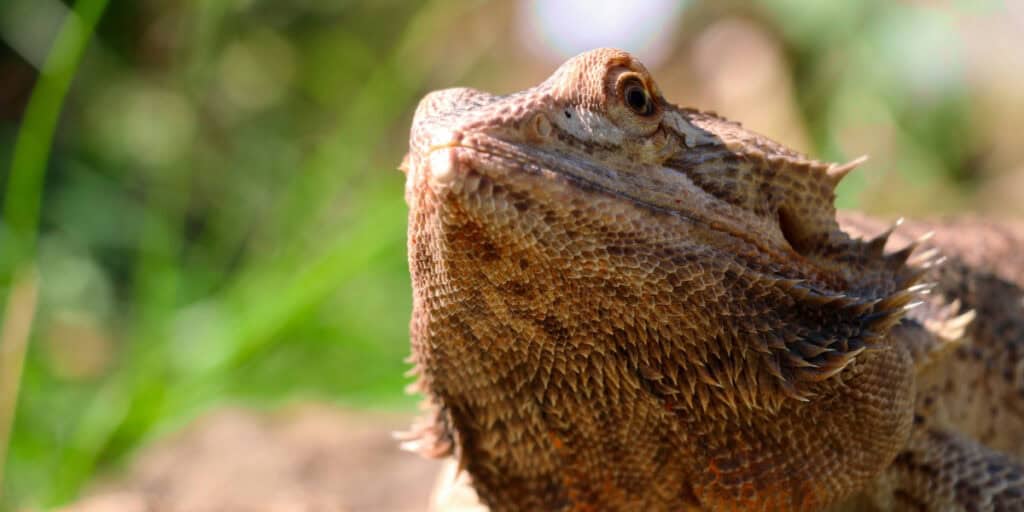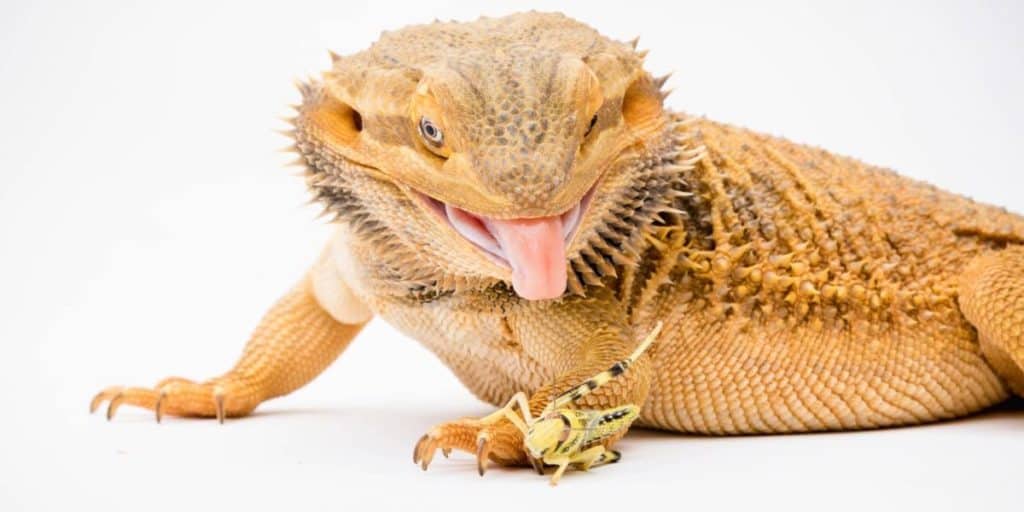Bearded dragons are omnivorous reptiles that require a diet consisting of both animal and plant matter. In their natural habitat, they consume various insects, leafy greens, and fruits to meet their nutritional needs. Pet owners should aim to replicate this diverse diet to ensure their bearded dragons receive all essential nutrients for proper growth and health.
The nutritional requirements of bearded dragons include a diet high in protein, low in fat, and rich in calcium and other essential vitamins and minerals. Protein is crucial for muscle development and overall growth, while calcium is vital for bone health and preventing metabolic bone disease, a common issue in captive bearded dragons. Other important nutrients include vitamin D3, vitamin A, and phosphorus, which support the immune system, vision, and overall health.
Dietary needs of bearded dragons vary with age. Juvenile bearded dragons require a higher protein intake to support rapid growth and development. In contrast, adult bearded dragons need a diet lower in protein and higher in fiber to maintain a healthy weight and prevent obesity.
Understanding these age-specific requirements allows owners to tailor their pet’s diet appropriately.
Key Takeaways
- Bearded dragons require a balanced diet that includes a variety of insects, vegetables, and fruits to meet their nutritional needs.
- A balanced diet is important for the overall health and well-being of bearded dragons, helping to prevent deficiencies and health issues.
- Insects such as crickets, mealworms, and roaches, along with a variety of leafy greens and vegetables, should make up the majority of a bearded dragon’s diet.
- Creating a feeding schedule that includes a variety of foods and ensures proper hydration is essential for the health of bearded dragons.
- Foods that are harmful to bearded dragons, such as those high in oxalates or toxic to reptiles, should be avoided to prevent health issues.
The Importance of a Balanced Diet for Bearded Dragons
Nutritional Variety for Optimal Health
A diet that includes a variety of insects, leafy greens, and fruits ensures that bearded dragons receive a diverse range of nutrients. This variety helps prevent boredom and encourages natural foraging behaviors, which are essential for their mental stimulation and overall happiness.
Supporting Overall Health
A balanced diet also supports the immune system, digestive health, and reproductive function of bearded dragons, ensuring they are better equipped to fight off diseases and maintain overall vitality.
Preventing Common Health Issues
Furthermore, a balanced diet plays a crucial role in preventing common health issues in bearded dragons, such as metabolic bone disease and obesity. By providing the right balance of protein, calcium, vitamins, and minerals, owners can help prevent these conditions and promote a healthy weight and body condition for their pets.
Best Foods for Bearded Dragons: Insects, Vegetables, and Fruits

Bearded dragons thrive on a diet that includes a variety of insects, leafy greens, and fruits. Insects are an essential source of protein for bearded dragons and should make up a significant portion of their diet, especially for juvenile dragons. Crickets, dubia roaches, mealworms, superworms, and black soldier fly larvae are popular choices among bearded dragon owners due to their high protein content and availability.
It’s important to gut-load insects with nutritious foods before feeding them to bearded dragons to ensure they provide optimal nutrition. In addition to insects, leafy greens are an essential component of a bearded dragon’s diet. Dark, leafy greens such as collard greens, mustard greens, dandelion greens, kale, and turnip greens are excellent sources of fiber, vitamins, and minerals.
These greens should make up the bulk of a bearded dragon’s vegetable intake and should be offered daily to ensure they receive essential nutrients for their overall health. Fruits should be offered in moderation as treats or occasional snacks for bearded dragons. Fruits such as strawberries, blueberries, raspberries, mangoes, and papayas are rich in vitamins and antioxidants but should be fed sparingly due to their high sugar content.
When offering fruits to bearded dragons, it’s important to remove any seeds or pits that could pose a choking hazard or contain harmful substances.
How to Create a Feeding Schedule for Bearded Dragons
Creating a feeding schedule for bearded dragons is essential for ensuring they receive the right balance of nutrients and maintain a healthy weight. Juvenile bearded dragons require more frequent feedings compared to adults due to their rapid growth and higher energy requirements. A typical feeding schedule for juvenile bearded dragons includes offering insects 2-3 times per day and providing fresh vegetables daily.
Adult bearded dragons have lower protein requirements and should be fed insects 2-3 times per week. Leafy greens should be offered daily to adult bearded dragons to ensure they receive adequate fiber and essential vitamins and minerals. Fruits can be offered as occasional treats or snacks for adult bearded dragons but should not make up a significant portion of their diet.
It’s important to monitor the feeding habits and body condition of bearded dragons to adjust their feeding schedule accordingly. Overfeeding can lead to obesity and other health issues, while underfeeding can result in malnutrition and stunted growth. By creating a feeding schedule that meets the specific needs of bearded dragons at different life stages, owners can ensure they receive the right balance of nutrients for optimal health.
Avoiding Foods That Are Harmful to Bearded Dragons
While there are many foods that are safe and nutritious for bearded dragons, there are also several foods that should be avoided due to potential health risks. Some common foods that are harmful to bearded dragons include spinach, chard, beet greens, and rhubarb. These foods contain high levels of oxalic acid, which can bind calcium and lead to the formation of kidney stones or other health issues in bearded dragons.
In addition to oxalic acid-containing foods, bearded dragons should not be fed avocados or any foods that are high in oxalates or goitrogens. These substances can interfere with the absorption of essential nutrients or disrupt thyroid function in bearded dragons. Feeding these foods to bearded dragons can lead to digestive issues, metabolic imbalances, or other health complications.
Furthermore, it’s important to avoid feeding bearded dragons insects that are too large or have hard exoskeletons that can cause digestive problems or impaction. Insects that have been exposed to pesticides or other harmful chemicals should also be avoided to prevent poisoning or other adverse effects on bearded dragons’ health. By being mindful of these harmful foods and potential risks, owners can help protect the health and well-being of their beloved pets.
Supplementation and Vitamin Requirements for Bearded Dragons

Calcium Supplementation
Calcium is one of the most critical supplements for bearded dragons, especially for preventing metabolic bone disease. Calcium supplements should contain vitamin D3 to support calcium absorption and utilization in bearded dragons.
Vitamin Supplementation at Different Life Stages
Vitamin supplements are also essential for meeting the specific needs of bearded dragons at different life stages. Juvenile bearded dragons may require additional vitamin supplementation to support their rapid growth and development, while adult bearded dragons may benefit from supplements that support reproductive function or overall immune health. It’s important to follow recommended dosage guidelines when supplementing bearded dragons’ diets to prevent over-supplementation or potential toxicity.
UVB Lighting for Vitamin D3 Production
UVB lighting is another crucial aspect of meeting the vitamin requirements of bearded dragons. UVB light helps stimulate the production of vitamin D3 in their skin, which is essential for calcium metabolism and overall health. Providing proper UVB lighting in their habitat ensures they can produce adequate vitamin D3 from their diet and maintain optimal calcium levels in their body.
By addressing these supplementation and vitamin requirements, owners can help ensure their bearded dragons receive all the essential nutrients for their well-being.
Monitoring the Health and Weight of Bearded Dragons Through Diet
Monitoring the health and weight of bearded dragons through their diet is essential for identifying potential issues early on and making necessary adjustments to their feeding regimen. Regularly assessing their body condition by observing their activity level, appetite, body shape, and overall appearance can help owners detect any changes that may indicate underlying health problems or nutritional imbalances. Weight fluctuations in bearded dragons can signal issues such as obesity or malnutrition.
Overfeeding can lead to excessive weight gain and obesity, which can put strain on their joints and internal organs. On the other hand, underfeeding can result in stunted growth or deficiencies that impact their overall health and vitality. By monitoring their weight through regular weigh-ins and adjusting their feeding schedule as needed, owners can help maintain a healthy body condition for their pets.
In addition to weight monitoring, observing their behavior during feeding time can provide valuable insights into their overall health. Changes in appetite or eating habits may indicate digestive issues or other health concerns that require attention. By staying vigilant and proactive in monitoring the health and weight of bearded dragons through their diet, owners can provide the best possible care for their beloved pets.
In conclusion, understanding the nutritional needs of bearded dragons is crucial for providing a well-balanced diet that supports their growth and overall health. By incorporating a variety of insects, leafy greens, and fruits into their diet, creating a feeding schedule that meets their specific needs at different life stages, avoiding harmful foods, addressing supplementation requirements, and monitoring their health and weight through diet, owners can ensure their bearded dragons thrive in captivity. With proper nutrition and care, bearded dragons can live long, healthy lives as cherished members of the family.
If you’re interested in learning more about reptiles, you might want to check out this fascinating article on ball pythons from DugsBugs. It delves into the mysterious world of these captivating creatures and provides valuable insights for reptile enthusiasts.
FAQs
What is the best diet for bearded dragons?
The best diet for bearded dragons consists of a variety of insects such as crickets, roaches, and mealworms, as well as leafy greens and vegetables such as collard greens, mustard greens, and squash.
How often should bearded dragons be fed?
Bearded dragons should be fed once or twice a day as juveniles, and once a day as adults. It’s important to provide the appropriate amount of food to avoid overfeeding or underfeeding.
Can bearded dragons eat fruits?
Bearded dragons can eat fruits as an occasional treat, but they should not make up a large portion of their diet. Fruits should be offered in moderation due to their high sugar content.
Do bearded dragons need supplements in their diet?
Bearded dragons may require calcium and vitamin supplements to ensure they are receiving all the necessary nutrients. Dusting their food with calcium powder and providing a multivitamin supplement can help meet their nutritional needs.
What foods should be avoided in a bearded dragon’s diet?
Foods to avoid in a bearded dragon’s diet include insects that are too large, high-fat insects such as waxworms, and toxic plants such as avocado and rhubarb. It’s important to research and avoid feeding any potentially harmful foods.




